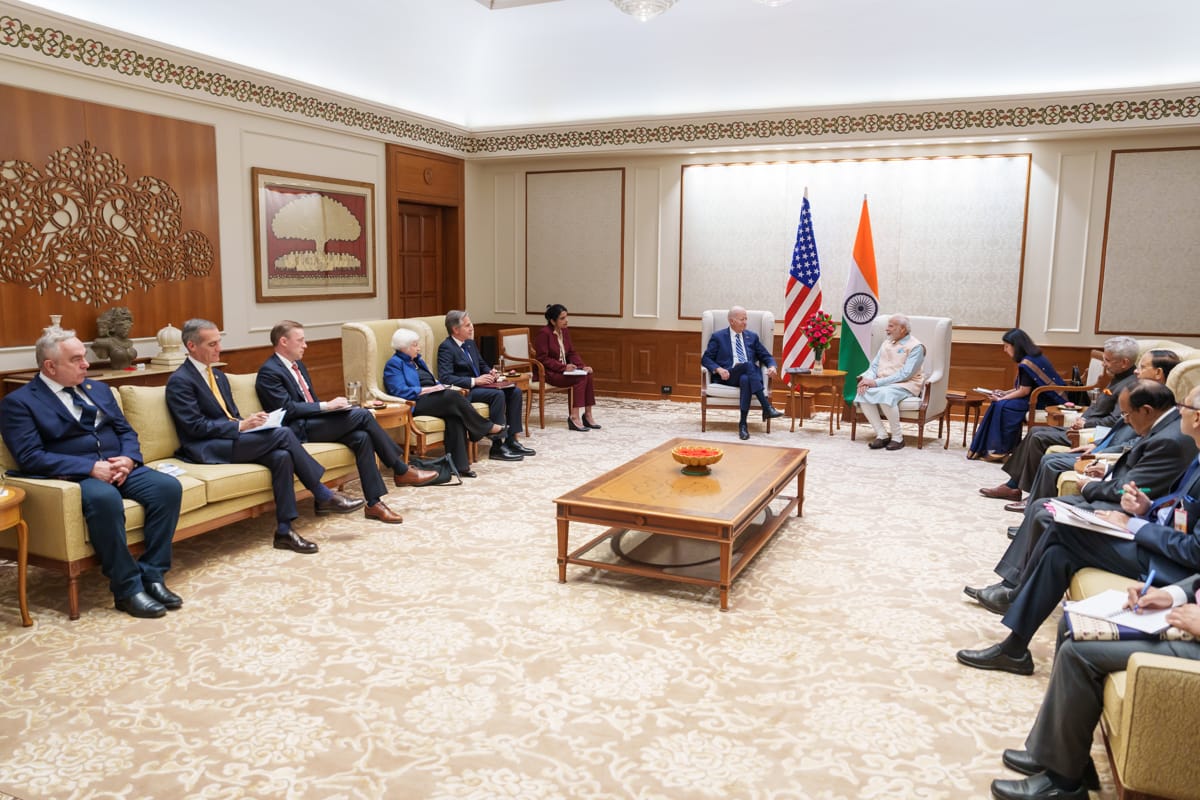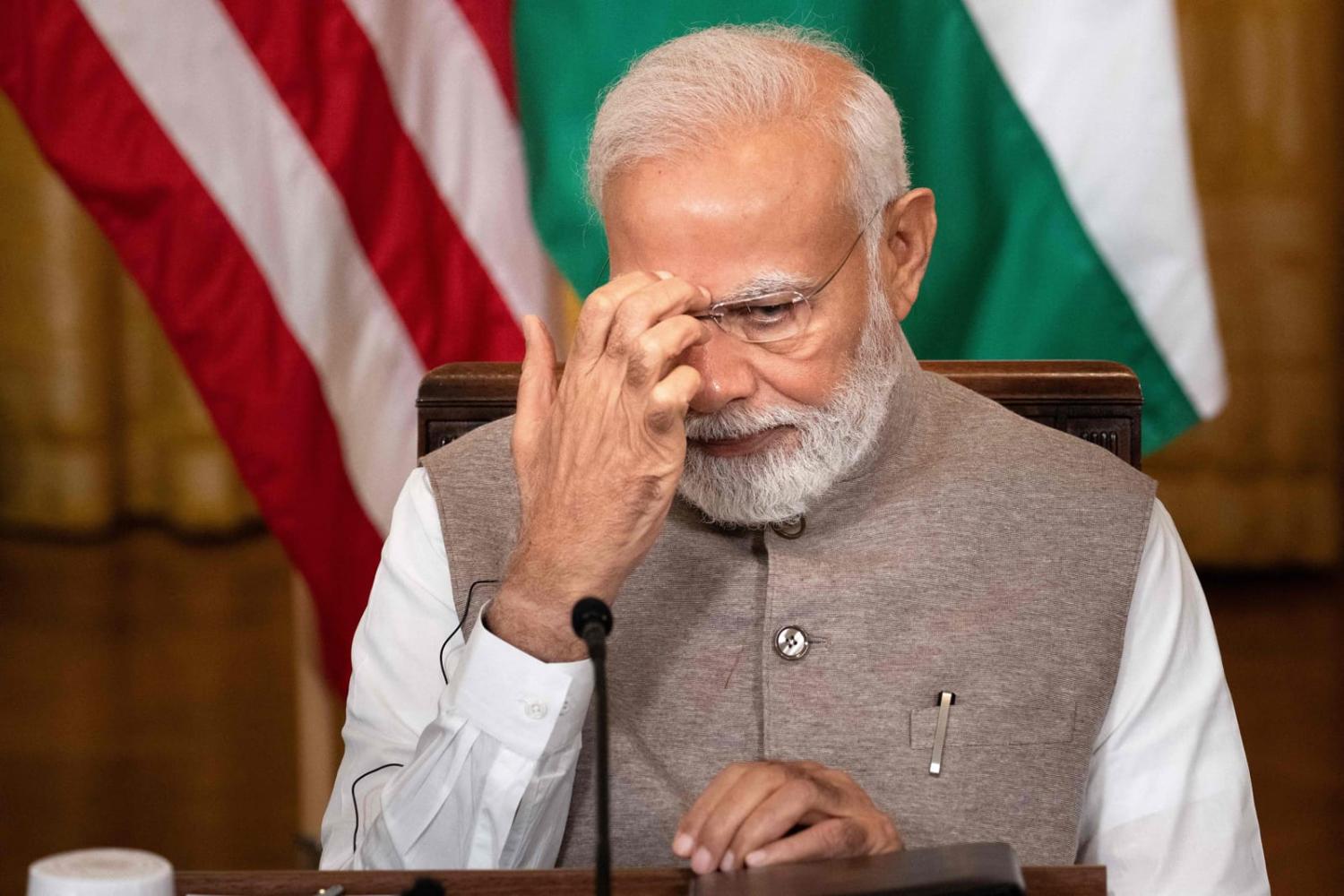It’s been almost a month since US authorities unsealed an indictment with shocking details about an unsuccessful plot, purportedly hatched by an Indian government official, to assassinate a Sikh separatist activist – who is a US citizen – in New York City.
Ever since the Biden administration learned of the alleged plot in July, if not earlier, top US officials have made clear they expect New Delhi to conduct an investigation and warned their Indian counterparts that it should never happen again. Meanwhile, Capitol Hill has expressed serious concerns. Just days after the indictment was unsealed, India was one of the focus countries of a Congressional hearing on transnational repression. Separately, five Indian-American members of the House of Representatives issued a statement citing risks to their constituents and warning of possible damage to bilateral relations. The hearing was held in the Democratic Party-led Senate, and the five representatives are all Democrats – underscoring the political pressure the administration may feel to take a stronger stand against India, especially with US elections less than a year away.
For a relationship that has largely hummed along happily in recent years, this is a gut punch. And yet, the partnership, despite some damage, should escape relatively unscathed.
Administration decisions already bear this out: having known of the plot, it didn’t cancel upcoming high-level engagements with New Delhi – including President Joe Biden’s meeting with Indian Prime Minister Narendra Modi in New Delhi in September, and a 2+2 meeting (involving each side’s top defence and diplomatic officials) in New Delhi in November. Additionally, US officials, though shaken by the allegations, conveyed their concerns to New Delhi privately, through conventional diplomatic channels. They were never prompted to go public.
There are three reasons why the relationship, while scarred, will survive.
First, the partnership is hardwired to withstand shocks. It has enjoyed exponential growth since the early 2000s. It boasts strong multipartisan backing in both capitals. Cooperation is deep and multifaceted. There are regular high-level dialogues that enable areas of contention to be addressed. Trust and goodwill are baked into the relationship, on both government-to-government and – thanks to a large Indian diaspora in the United States, extensive business relations, and robust education exchanges – people-to-people levels. Consequently, over the last decade, the partnership has successfully weathered occasional crises. Recall the arrest of an Indian consular official in New York, Washington’s slow (later attributed to bureaucratic delays) response to India’s terrible Covid surge, and New Delhi’s muted position on Russia’s invasion of Ukraine.

Second, from Washington’s perspective, the strategic rationale for partnership is unassailable. Competition with China is a long-term top priority. Washington needs a close partner in South Asia, and India best fits the bill, due to its location, fast-growing economy, large military, and above all its own longstanding competition with China. True, it doesn’t participate in the US alliance system, which some critics view as a concern for future partnership. But its demonstrated capacity to serve as a net security provider in the Indo-Pacific, and its potential to counter China through non-military means (such as its booming tech industry), underscore its strong strategic significance.
Third, Washington doesn’t let moral and values considerations shape its choices of strategic partners. From Cold War-era right-wing dictatorships to Egypt and Saudi Arabia today, the United States has often embraced – for strategic reasons – undemocratic or repressive governments, and overlooked their excesses.
To be sure, Washington has never accused any of those states of attempting an extrajudicial killing on US soil. This makes the India case unique. For several years, American officials quietly watched with concern as New Delhi ramped up repression at home. However, such actions, thousands of miles from American shores, didn’t directly impact US interests. But now, if the allegations are accurate, that repression has gone transnational and arrived on US soil.
For many administration officials, this realisation will be difficult to process. It could shake some of that well-stocked trust. If such anxieties persist, the relationship could face bigger challenges down the road – especially with the two sides transferring more technologies and sharing more intelligence than ever before. But for now, barring a worst-case scenario – such as another extrajudicial killing – US-India relations can bank on their strength and resilience to get them through this rough patch.

